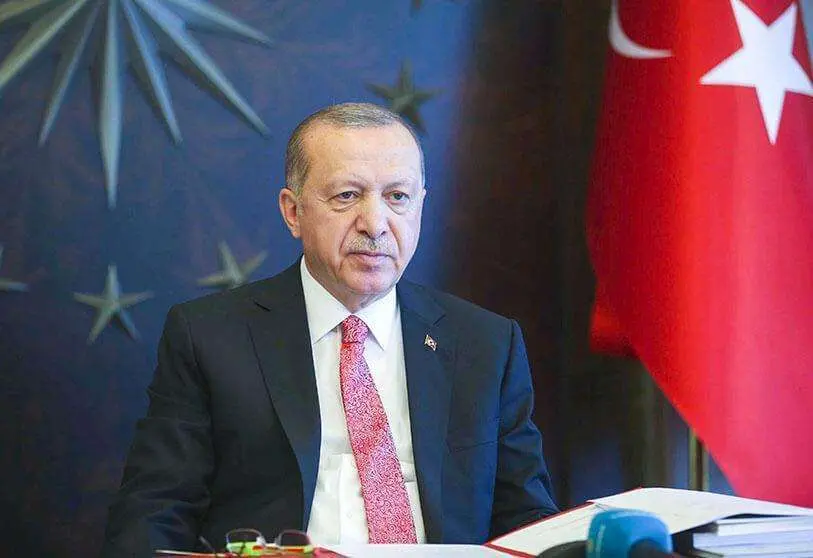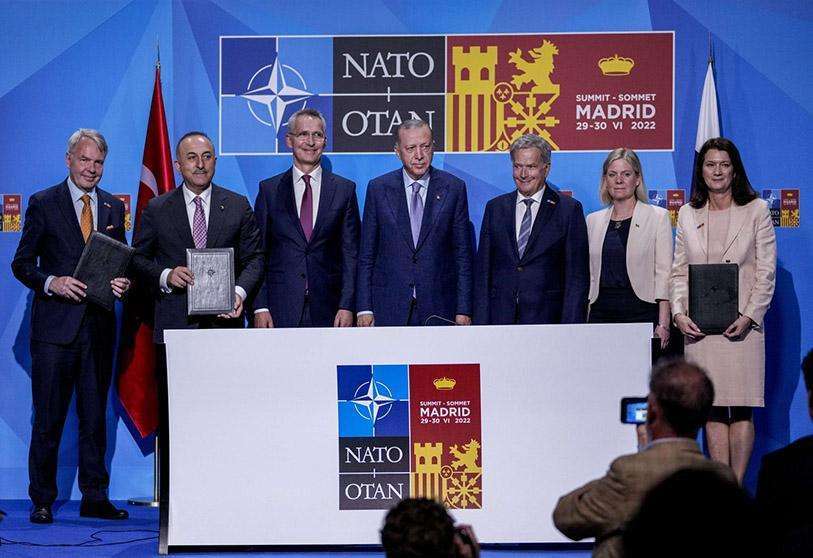Erdogan threatens Sweden: Turkey will not support Sweden's NATO accession

Demonstrations in Sweden against their country's blockade of NATO membership were causing an escalation of tension that has finally exploded. The burning of The Quran at one of these protests has broken the patience of Ankara, which has expressed its refusal to support Stockholm's NATO membership.
Rasmus Paludan, a Danish politician from the Stram Kurs (Hard Line) party, set fire to a copy of the holy book in the vicinity of the Turkish embassy in Sweden. A few hours later, the Turkish Foreign Ministry issued a statement on the matter: "We condemn in the strongest possible terms the vile attack on our holy book". They further state that "to allow this act against Islam, which targets Muslims and insults our sacred values, under the pretext of freedom of expression, is totally unacceptable".

Turkey's own President Recep Tayyip Erdogan himself gave a speech after the cabinet meeting stating that "those who allow such blasphemy in front of our embassy can no longer expect our support for their NATO membership". In this way, Ankara is making its position clear, and what was once an agreement for Sweden's entry into the Atlantic Alliance is now a dead letter. Moreover, Erdogan has invited Stockholm to seek new support: "If you love members of terrorist organisations and enemies of Islam so much and protect them, then we recommend that you seek their support for the security of your countries".
However, the problems between the Swedes and the Ottomans have increased in recent weeks. Swedish Defence Minister Pal Jonson's planned visit to Turkey on 27 January to meet with his Turkish counterpart, Hulusi Akar, was called off. The key to this suspension is that both sides have given different versions of the reasons for not holding the meeting.
İsveç’teki çirkin eylem, en başta Müslümanlar olmak üzere insanların temel hak ve özgürlüklerine saygı duyan herkese yapılmış bir hakarettir.
— Recep Tayyip Erdoğan (@RTErdogan) January 23, 2023
Rabbimizin koruması altındaki Kur’an-ı Kerim, bir “haçlı artığının” onun nüshasını yakmasıyla asla zarar görmeyecektir... pic.twitter.com/Comr0QKrNF
Akar stated that "at this moment, the visit of Swedish Defence Minister Pal Jonson to Turkey on 27 January is no longer meaningful. So we have cancelled it". The reason for this decision, according to Ankara, is the lack of action by the Swedish authorities against the protests: "It is unacceptable not to do anything and not to react to these (protests). Action should have been taken". On the other hand, Pal Jonson claims that the suspension of the meeting was mutually agreed during a meeting between him and Akar in Germany as part of a meeting of Western allies.
One of the main sources of conflict in Swedish-Turkish relations has been Sweden's links with those considered terrorists by Ankara, the Kurdish militants. Indeed, making its position on them clear was one of Turkey's demands for NATO membership, something that seems utopian at the moment. Not even the words of Foreign Minister Tobias Billstrom condemning the protests have convinced the Turkish government, which is determined not to facilitate Swedish membership.
Islamophobic provocations are appalling. Sweden has a far-reaching freedom of expression, but it does not imply that the Swedish Government, or myself, support the opinions expressed.
— Tobias Billström (@TobiasBillstrom) January 21, 2023
"The Islamophobic provocations are appalling. Sweden enjoys wide freedom of expression, but that does not imply that the Swedish government, or I myself, support the views expressed," Minister Billstrom said on his Twitter account. However, Sweden's application for NATO membership last year - along with Finland - has become an even more complex process following the protests and the consequent anger of a Recep Tayyip Erdogan who seems more concerned with Turkey's newly called elections in May this year.








